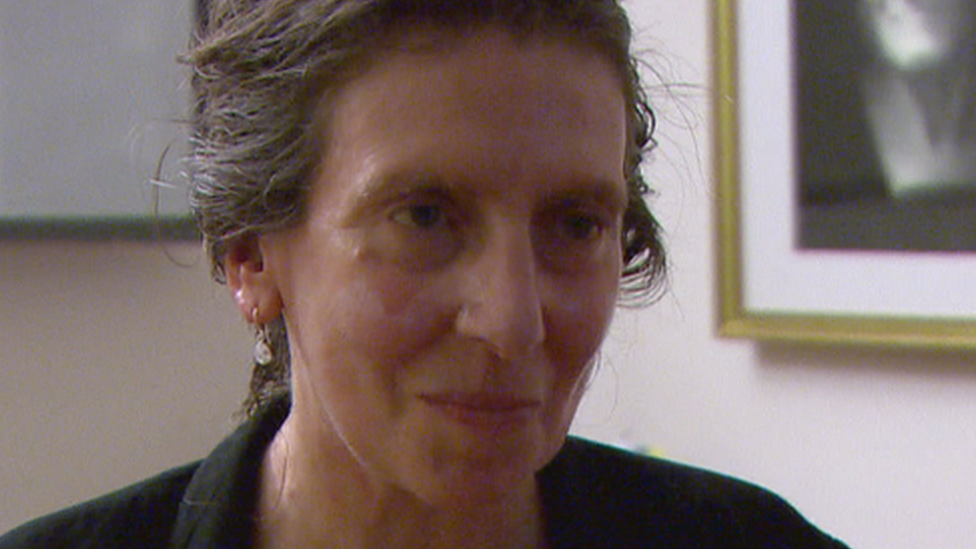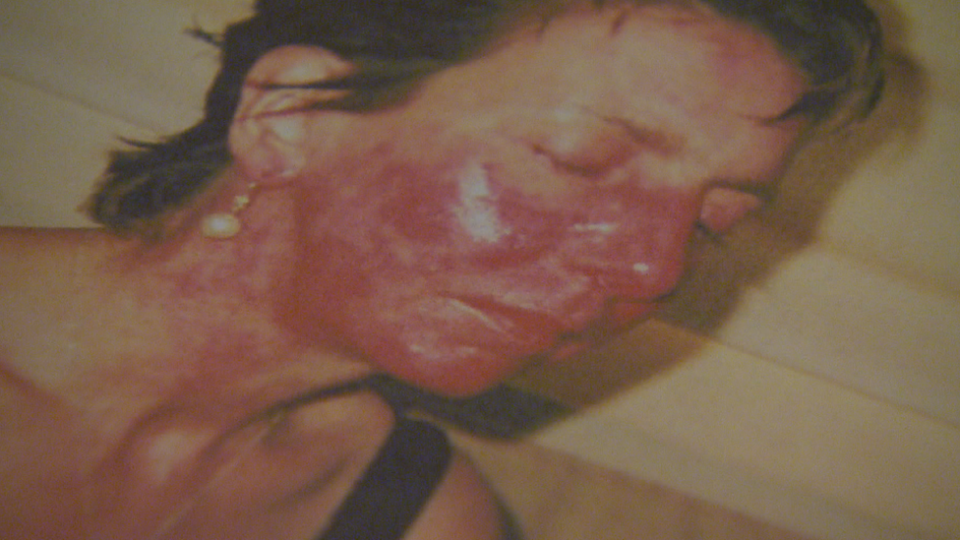'I lost my teaching career due to infected blood scandal'

A victim of the infected blood scandal has told how she lost her teaching career after her delayed diagnosis with hepatitis C.
Gill Fyffe said compensation would make a massive difference to her family's life after years of financial "firefighting" which included having to sell their home.
The UK government has announce a comprehensive compensation scheme for victims, with the first final payments expected to be made before the end of 2024.
Ms Fyffe received a transfusion after the birth of her daughter in Ninewells Hospital, Dundee, in 1988.
She later struggled to understand why she was so tired that she once fell asleep while driving and crashed her car with her two children in the back.
But it was seven years before she finally learned that the blood she was given was contaminated.
The UK compensation scheme comes after a public inquiry found authorities had exposed victims to unacceptable risks and covered up the NHS's biggest treatment disaster.
Some 30,000 people were infected and around 3,000 have died so far.
On Monday, a public inquiry said victims were repeatedly failed, with evidence of a cover-up.
What we know about the new compensation scheme:
Cabinet Office Minister John Glen set out details of the infected blood compensation scheme in the House of Commons on Tuesday.
He said the interim payments of £210,000 would be paid within 90 days while the final scheme becomes operational.
The money will go to "living infected beneficiaries, those registered with existing infected blood support schemes" and those who register while the final scheme is set up.
Those who have been infected or affected as a result of the scandal are eligible for the final compensation scheme.
They include people directly or indirectly infected by NHS blood, blood products or tissue contaminated with HIV or hepatitis C, or those who have developed chronic infection from blood contaminated with hepatitis B.
Where an infected person has died, compensation will be paid to their estate.
A new arm's length body - the Infected Blood Compensation Authority - has been set up by the government to administer the compensation scheme.
Barrister Sir Robert Francis will be interim chair of the body.
Full details of the compensation scheme are to be published on Tuesday afternoon on the government's website.
Ms Fyffe recalled how she banged on the door of her GP surgery after reading a letter informing her that she had been given contaminated blood.
She was anxious about infecting her children but they were later given the all-clear.
Ms Fyffe started taking medication but was left with extreme photosensitivity and is unable to use a computer.
She later wrote a book on the scandal, which was published in 2015.
Asked about the prospect of compensation, she told BBC Radio's Good Morning Scotland programme: "To me it would make a huge difference because I have effectively, over those 30 years, lost my salary except for a small period when I tried to go back to work."
As a result she struggled financially and had to sell her house.
Ms Fyffe said: "We keep trying to make it work and, to this day, we are still firefighting. It doesn't work.
"If we had compensation then we would have financial security and, as I am now 65, I think that would make a huge difference to our children."

Ms Fyffe, from Perthshire, said she never thought she would see the day Sir Brian Langstaff's final report was released.
She admitted experiencing "a feeling of elation" but also one of "desperate regret" that it had taken so long.
Fighting back tears, Ms Fyffe said: "I think the biggest thing for me is I hope my children had a happy childhood, but I wish it would have been different from this."
The former teacher said she felt "really ashamed" before her diagnosis as she struggled to cope with the demands of parenting.
She said: "I was so tired that, to give you an example, one afternoon I fell asleep at the wheel with my children strapped in the car behind me and drove off the road and wrote off the car.
"That's the sort of danger that not being told puts one in."

